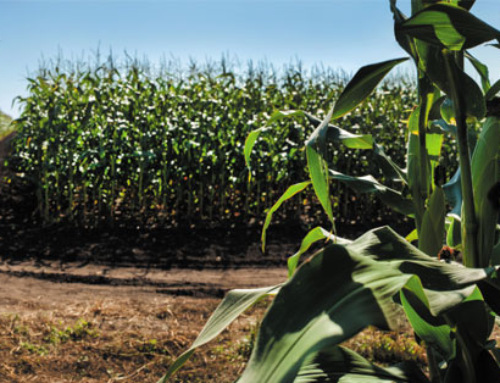Perhaps more than most groups of people, parents were caught by surprise when the COVID-19 quarantine became a long-term reality.
A month into the extended quarantine, there’s still no certainty about when it will all finally end. But after spending a month at home in constant contact with their kids, many parents – even more keyed in to their kids’ emotional lives than usual – are wondering how to prepare their children for adjusting to life when the quarantine ends.
 Fortunately, CRC’s access to expert consultants includes the Child Development and Education Specialists at the University of Asia and the Pacific’s Child Development and Education (CDE) Center . And with help from the Staff of the Institute for Marriage and Family Development (IMFD), we were able to interview five of the CDE Center’s experts – its director Ms. Lexie Estacio, and Teachers Aubrey Madridejos, Joey Santos, Ena Guevarra, Nina Reyes, and Mel Garcia – some key questions about helping schoolkids adjust to the coming “new normal.”
Fortunately, CRC’s access to expert consultants includes the Child Development and Education Specialists at the University of Asia and the Pacific’s Child Development and Education (CDE) Center . And with help from the Staff of the Institute for Marriage and Family Development (IMFD), we were able to interview five of the CDE Center’s experts – its director Ms. Lexie Estacio, and Teachers Aubrey Madridejos, Joey Santos, Ena Guevarra, Nina Reyes, and Mel Garcia – some key questions about helping schoolkids adjust to the coming “new normal.”
This article covers part one of the interview; we’ll have more of it available for you on Friday morning.
CRC would like to acknowledge the help of IMFD staffer Ms. Mikha Gatpandan and the CDE Center’s Ms. Lexie Estacio, without whom this interview would not have been possible.
- The COVID-19 quarantine experience has proven life-changing, and even traumatic to many adults. But schoolkids experience the world a bit differently. How important do you think it is that parents help their kids prepare emotionally for life after the quarantine?
Teacher Mel Garcia:
Children cope with changes differently. Given how the pandemic has altered and even disrupted their daily lives, helping children transition is essential. More than just informing them that they will be back to school, preparing their mindset and their emotional readiness is paramount.
Ms. Lexie Estacio
Children abruptly stopped going to school due to the pandemic, which obviously caused a huge change in their routines. When something like this happens, children get affected emotionally. It’s crucial for parents and other significant adults to provide children with logical explanation for the sudden change and the new practices that are introduced, such as social distancing, wearing masks, and so on. [It’s also] very important to give them the assurance that they are loved and protected in this time of uncertainty.
Since children will be away from school for many months, it’s definitely important to gradually prepare them for their return to school. As an educator of young children, [I want to point out that] it’s important for children to achieve progress in all domains of development – physical, cognitive, social, and emotional. This is what most preschool programs aim for.
Even if children temporarily stop going to school, parents must ensure the continuity of children’s development in all these areas. They must be provided with nutritious food and opportunities to play and continue growing and learning.
Among the domains mentioned, social and emotional would be the most challenging to address in this time of crisis. It is very different when children get to interact and play with their peers, compared to just saying at home with adults only.
I am thankful that now with the aid of technology, children can be provided with opportunities to continue interacting with their peers via Zoom or Google Hangouts. They can communicate with their teachers and virtually play with their classmates. Although the quality of interaction may be sacrificed a bit, it is still definitely a lot better than not having any at all. These efforts will make the preparation for the resumption of school easier.
Teacher Joey Santos
Informing them about what will happen next, giving them something to look forward to about school, following routines at home, and assuring them that they are safe and loved will help children transition back smoothly.
Teacher Ena Guevarra
[When the quarantine started,] children must have had a lot of questions about what was happening. [By now,] some may have a good understanding of it all, but some may still be wondering about some things.
It’s important that they understand the situation and be reassured that everything is going back to [some sense of normalcy]. Parents and guardians with children must be experiencing the same emotions, [but they need to remember that they] need to also help their child process everything.
- Schoolkids of different ages will have experienced the COVID-19 quarantine differently – should parents with kids of different ages adjust their approach accordingly? How so?
Teacher Nina Reyes
When it comes to dealing with young children, nothing is ever “one size fits all.” We help them best when we give importance to their individuality, and so it is vital for parents to consider the differences in their children’s temperament, age, interests, and strengths especially when explaining and helping them adjust to the COVID-19 situation.
Some children may adapt to change better than others. Some may like the idea of staying home, while others may constantly ask about school. To be able to adjust their approach accordingly, parents then need to listen to their children first – hear their stories and feelings, and find out what works best for them.
Ms. Lexie Estacio
Every child is unique, [so] the approach to explaining what a child sees, hears, or experiences about COVID-19 must be chosen well. The approach must be carried out in careful consideration of the child’s personality, temperament, interests, etc.
For instance, if the child loves listening to stories, parents may creatively explain COVID-19 through a story or if he is very much interested in Science, the child, together with the parents, can conduct an age-appropriate experiment to learn about Corona virus.
Teacher Joey Santos
[…]We can learn how to help them best by LISTENING. Adults must observe how the changes brought by COVID-19 are affecting children’s behavior. Adults must also listen to children’s questions and respond appropriately and patiently. We must also listen to them when they express their emotions as this alone can make them feel better. Once we know how children feel about the situation, we can respond based on what we think our children need.
Teacher Aubrey Madridejos
Age appropriateness and language appropriateness are important, because not all approaches to lessons and activities are applicable to all children with different ages.
Adults should find a balance between approaching the child according to their age/skills and challenging them at the same time. If things are very easy for the child, it may result in boredom. But if things that are given to the child are too difficult, the child may get stressed and not progress that much.
Parents must find ways on how to find that sweet balance, and it starts with getting to know more of their child.
- By now, most parents have had a chance to talk to their kids about their feelings regarding the pandemic and the quarantine. But some parents may not have been prepared for that kind of heart-to-heart talk. Do you have any advice for those parents? What are the important things they have to make sure they discuss?
Teacher Ena Guevarra
A child will only learn to express themselves if the people around him/her are readily available to talk and listen. This situation may be the perfect [opportunity] for parents and children at home to talk on a personal level.
When talking to children, parents must be all-ears and ready to tackle even the simplest and most complex topics. Parents must be ready to probe questions and have an answer to every question.
Parents must deal with children with utmost respect and understanding. If things could not be resolved through communication, parents may find other materials to help children understand a topic in a better view and based on their child’s interests -. videos, storybooks, art activities, experiments, and so on.
Teacher Mel Garcia
Some parents believe that children are either too young to be aware of what is going on or that talking about the pandemic will only bring them distress. […] Parents can take cues from their children and consider what information is most relevant for the child.
The number of questions and the depth of those will vary depending on how much the child wants to know. Start with the simplest answers. Provide age-appropriate information. Observe how they respond and move forward from there.
It is important, though, to describe the status quo, give them reassurance, and maintain routines.
Teacher Aubrey Madridejos
Building a good relationship with the child is the first step.
In my class, I try to reach out to my students and share things about me as soon as the school year starts, so that they would feel comfortable when it is their turn to share with me.
For parents at home, they have to make sure that their child is comfortable with them whenever they talk. Especially when it comes to heart-to-heart talks, establishing good relationships is a must.
Once the child and the parent are comfortable [when it comes to] communicating with each other, parents should make sure that they are prepared to listen to their child. Children tend to tell stories and talk about their unlimited ideas, but parents should be prepared and have patience whenever these things happen.
In addition, parents should also be able to provide or reply with their ideas positively using age-appropriate words so that the child may understand them.
Ms. Lexie Estacio
Parents must ensure that trust is established in their relationship with their child. As mentioned earlier, every child is unique. Some kids are not very expressive of their feelings while some are very verbal about it. It is important for parents to be observant of how their child is reacting and adjusting to the pandemic and the quarantine.
Some children will be very curious about the new practices introduced to them, so they end up asking a lot of questions to satisfy their curiosity. Some children may feel scared at the sight of people wearing masks. Whatever the case may be, parents must make their child feel the love and security. This will help the child to express his thoughts and feelings more comfortably.
Teacher Joey Santos
Honesty is the foundation of good communication. When parents speak to their children about the situation and share with them how they truly feel about it, children will more likely be comfortable to share about their own experiences and emotions too.
Children are naturally curious and so, building on what they are curious about in this COVID-19 situation and their questions could be a good starter. Based on children’s age and maturity level, we can try different ways to explain it- a simple conversation, pretend play, experiments, reading a story, watching a video or news. Parents are encouraged to respond to their children with utmost patience as it could be challenging to discuss this matter with children.
In part II of this interview, which will be posted next week, we discuss how to tell if a schoolchild is having difficulty addressing their emotions about the quarantine; what should parents say to the kids who aren’t eager to return to a school environment; and the UA&P SED teachers’ advice for parents still struggling to keep their kids engaged, even if they’re stuck in the house all day.






